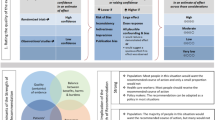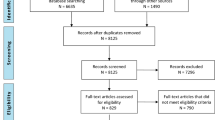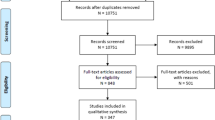Abstract
Strong evidence in support of guidelines for traumatic brain injury (TBI) is lacking. Large-scale observational studies may offer a complementary source of evidence to clinical trials to improve the care and outcome for patients with TBI. They are, however, challenging to execute. In this review, we aim to characterize opportunities and challenges of large-scale collaborative research in neurotrauma. We use the setup and conduct of Collaborative European Neurotrauma Effectiveness Research in TBI (CENTER-TBI) as an illustrative example. We highlight the importance of building a team and of developing a network for younger researchers, thus investing toward the future. We involved investigators early in the design phase and recognized their efforts in a group contributor list on all publications. We found, however, that translation to academic credits often failed, and we suggest that the current system of academic credits be critically appraised. We found substantial variability in consent procedures for participant enrollment within and between countries. Overall, obtaining approvals typically required 4–6 months, with outliers up to 18 months. Research costs varied considerably across Europe and should be defined by center. We substantially underestimated costs of data curation, and we suggest that 15–20% of the budget be reserved for this purpose. Streamlining analyses and accommodating external research proposals demanded a structured approach. We implemented a systematic inventory of study plans and found this effective in maintaining oversight and in promoting collaboration between research groups. Ensuring good use of the data was a prominent feature in the review of external proposals. Multiple interactions occurred with industrial partners, mainly related to biomarkers and neuroimaging, and resulted in various formal collaborations, substantially extending the scope of CENTER-TBI. Overall, CENTER-TBI has been productive, with over 250 international peer-reviewed publications. We have ensured mechanisms to maintain the infrastructure and continued analyses. We see potential for individual patient data meta-analyses in connection to other large-scale projects. Our collaboration with Transforming Research and Clinical Knowledge in TBI (TRACK-TBI) has taught us that although standardized data collection and coding according to common data elements can facilitate such meta-analyses, further data harmonization is required for meaningful results. Both CENTER-TBI and TRACK-TBI have demonstrated the complexity of the conduct of large-scale collaborative studies that produce high-quality science and new insights.

Similar content being viewed by others
References
Maas AIR, Menon DK, Adelson PD, et al. Traumatic brain injury: integrated approaches to improve prevention, clinical care, and research. Lancet Neurol. 2017;16(12):987–1048. https://doi.org/10.1016/S1474-4422(17)30371-X.
Maas AI, Menon DK, Steyerberg EW, et al. Collaborative European NeuroTrauma Effectiveness Research in Traumatic Brain Injury (CENTER-TBI): a prospective longitudinal observational study. Neurosurgery. 2015;76(1):67–80.
Steyerberg EW, Wiegers E, Sewalt C, et al. Case-mix, care pathways, and outcomes in patients with traumatic brain injury in CENTER-TBI: a European prospective, multicentre, longitudinal, cohort study. Lancet Neurol. 2019;18(10):923–34.
Tosetti P, Hicks RR, Theriault E, et al. Toward an international initiative for traumatic brain injury research. J Neurotrauma. 2013;30(14):1211–22. https://doi.org/10.1089/neu.2013.2896.
Timmers M, van Dijck JTJM, van Wijk RPJ, et al. How do 66 European institutional review boards approve one protocol for an international prospective observational study on traumatic brain injury? Experiences from the CENTER-TBI study. BMC Med Ethics. 2020;21(1):36. https://doi.org/10.1186/s12910-020-00480-8.
van Wijk RPJ, van Dijck JTJM, Timmers M, van Veen E, Citerio G, Lingsma HF, Maas AIR, Menon DK, Peul WC, Stocchetti N, Kompanje EJO; CENTER-TBI investigators and participants. Informed consent procedures in patients with an acute inability to provide informed consent: Policy and practice in the CENTER-TBI study. J Crit Care. 2020;59:6–15. https://doi.org/10.1016/j.jcrc.2020.05.004
Shepherd V, Hood K, Sheehan M, Griffith R, Wood F. ‘It’s a tough decision’: a qualitative study of proxy decision-making for research involving adults who lack capacity to consent in UK. Age Ageing. 2019;48:903–9. https://doi.org/10.1093/ageing/afz115.
Kunzmann K, Wernisch L, Richardson S, et al. Imputation of ordinal outcomes: a comparison of approaches in traumatic brain injury. J Neurotrauma. 2021;38(4):455–63.
Ercole A, Dixit A, Nelson DW, et al. Imputation strategies for missing baseline neurological assessment covariates after traumatic brain injury: A CENTER-TBI study. PLoS ONE. 2021;16(8):e0253425.
Wilkinson MD, Dumontier M, Aalbersberg IJ, et al. The FAIR Guiding Principles for scientific data management and stewardship. Sci Data. 2016;15(3): 160018. https://doi.org/10.1038/sdata.2016.18.Erratum.In:SciData.2019Mar19;6(1):6.PMID:26978244;PMCID:PMC4792175.
Scheufele E, Aronzon D, Coopersmith R, et al. TranSMART: an open source knowledge management and high content data analytics platform. AMIA Jt Summits Transl Sci Proc. 2014;2014:96–101.
Doiron D, Marcon Y, Fortier I, Burton P, Ferretti V. Software Application Profile: Opal and Mica: open- source software solutions for epidemiological data management, harmonization and dissemination. Int J Epidemiol. 2017;46(5):1372–8. https://doi.org/10.1093/ije/dyx180].
Ercole A, Brinck V, George P, et al. DAQCORD collaborators. Guidelines for Data acquisition, quality and curation for observational research designs (DAQCORD). J Clin Transl Sci. 2020;4(4):354–359. https://doi.org/10.1017/cts.2020.24
Wilson L, Boase K, Nelson LD, Temkin NR, Giacino JT, Markowitz AJ, Maas A, Menon DK, Teasdale G, Manley GT. A Manual for the Glasgow outcome scale-extended interview. J Neurotrauma. 2021;38(17):2435–46. https://doi.org/10.1089/neu.2020.7527.
Longo DL, Drazen JM. Data sharing. N Engl J Med. 2016;374(3):276–7. https://doi.org/10.1056/NEJMe1516564.
Wilhelm EE, Oster E, Shoulson I. Approaches and costs for sharing clinical research data. JAMA 2014;311(12):1201
Fontanarosa P, Bauchner H, Flanagin A. Authorship and team science. JAMA. 2017;318(24):2433–7. https://doi.org/10.1001/jama.2017.19341.
Acknowledgements
The authors would like to thank all participants and investigators for contributing to the team spirit of CENTER-TBI and dedicating their time and efforts to the project. We are grateful to all patients for their participation in the CENTER-TBI study.
Funding
The work of CENTER-TBI was supported by the European Commission FP7 (602150). Additional funding was obtained from Hannelore Kohl Stiftung (Germany), from OneMind (USA), from Integra LifeSciences Corporation (USA), and from Neurotrauma Sciences (USA). The funders had no role in the design of the study; collection, analysis, interpretation of data; and writing of the manuscript. All authors had full access to the study data and had final responsibility for the decision to submit for publication.
Author information
Authors and Affiliations
Contributions
All authors were involved in the concept, design, and execution of CENTER-TBI and have all contributed to this review. The final manuscript was approved by all authors.
Corresponding author
Ethics declarations
Conflicts of Interest
All authors were involved in the CENTER-TBI study, primarily supported by the FP7 program of the European Union. The authors report no relevant conflicts of interest.
Ethical approval/informed consent
CENTER-TBI adhered to ethical guidelines, IRB approvals were obtained in all participating centers, and consent was obtained from all participants or their proxies according to national and local regulations. The CENTER-TBI study (grant 602150) has been conducted in accordance with all relevant laws of the European Union, if directly applicable or of direct effect, and all relevant laws of the country where the recruiting sites were located, including, but not limited to, the relevant privacy and data protection laws and regulations (the “Privacy Law”), the relevant laws and regulations on the use of human materials, and all relevant guidance relating to clinical studies from time to time in force, including, but not limited to, the ICH Harmonised Tripartite Guideline for Good Clinical Practice (CPMP/ICH/135/95) (“ICH GCP”) and the World Medical Association Declaration of Helsinki entitled “Ethical Principles for Medical Research Involving Human Subjects.” Informed consent by the patients and/or the legal representative/next of kin was obtained, according to the local legislations, for all patients recruited in the core data set of CENTER-TBI and documented in the e-CRF. Ethical approval was obtained for each recruiting site. The list of sites, ethical committees, approval numbers, and approval dates can be found on the website: https://www.center-tbi.eu/project/ethical-approval. We note, however, that the current review article did not make use of individual patient data.
Additional information
Publisher's Note
Springer Nature remains neutral with regard to jurisdictional claims in published maps and institutional affiliations.
Rights and permissions
Springer Nature or its licensor holds exclusive rights to this article under a publishing agreement with the author(s) or other rightsholder(s); author self-archiving of the accepted manuscript version of this article is solely governed by the terms of such publishing agreement and applicable law.
About this article
Cite this article
Maas, A.I.R., Ercole, A., De Keyser, V. et al. Opportunities and Challenges in High-Quality Contemporary Data Collection in Traumatic Brain Injury: The CENTER-TBI Experience. Neurocrit Care 37 (Suppl 2), 192–201 (2022). https://doi.org/10.1007/s12028-022-01471-w
Received:
Accepted:
Published:
Issue Date:
DOI: https://doi.org/10.1007/s12028-022-01471-w




